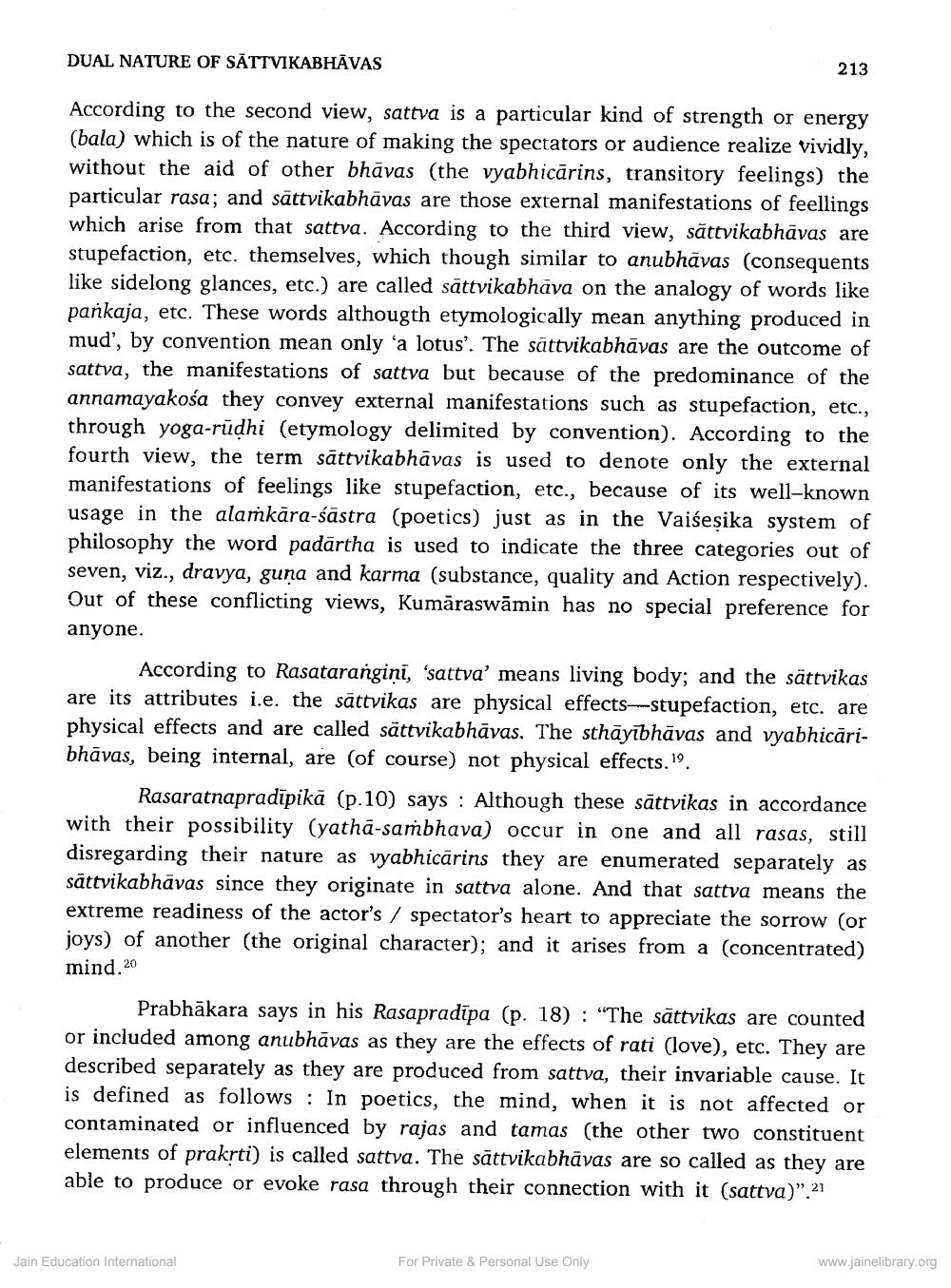________________ DUAL NATURE OF SATTVIKABHAVAS 213 According to the second view, sattva is a particular kind of strength or energy (bala) which is of the nature of making the spectators or audience realize vividly, without the aid of other bhavas (the vyabhicarins, transitory feelings) the particular rasa; and sattvikabhavas are those external manifestations of feellings which arise from that sattva. According to the third view, sattvikabhavas are stupefaction, etc. themselves, which though similar to anubhavas (consequents like sidelong glances, etc.) are called sattvikabhava on the analogy of words like pankaja, etc. These words althougth etymologically mean anything produced in mud', by convention mean only "a lotus'. The sattvikabhavas are the outcome of sattva, the manifestations of sattva but because of the predominance of the annamayakosa they convey external manifestations such as stupefaction, etc., through yoga-rudhi (etymology delimited by convention). According to the fourth view, the term sattvikabhavas is used to denote only the external manifestations of feelings like stupefaction, etc., because of its well-known usage in the alamkara-sastra (poetics) just as in the Vaisesika system of philosophy the word padartha is used to indicate the three categories out of seven, viz., dravya, guna and karma (substance, quality and Action respectively). Out of these conflicting views, Kumaraswamin has no special preference for anyone. According to Rasatarangini, 'sattva' means living body; and the sattvikas are its attributes i.e. the sattvikas are physical effects-stupefaction, etc. are physical effects and are called sattvikabhavas. The sthayibhavas and vyabhicaribhavas, being internal, are (of course) not physical effects.19. Rasaratnapradipika (p.10) says : Although these sattvikas in accordance with their possibility (yatha-sambhava) occur in one and all rasas, still disregarding their nature as vyabhicarins they are enumerated separately as sattvikabhavas since they originate in sattva alone. And that sattva means the extreme readiness of the actor's / spectator's heart to appreciate the sorrow (or joys) of another (the original character); and it arises from a (concentrated) mind.20 Prabhakara says in his Rasapradipa (p. 18): "The sattvikas are counted or included among anubhavas as they are the effects of rati (love), etc. They are described separately as they are produced from sattva, their invariable cause. It is defined as follows : In poetics, the mind, when it is not affected or contaminated or influenced by rajas and tamas (the other two constituent elements of prakrti) is called sattva. The sattvikabhavas are so called as they are able to produce or evoke rasa through their connection with it (sattva)". 21 For Private & Personal Use Only Jain Education International www.jainelibrary.org




